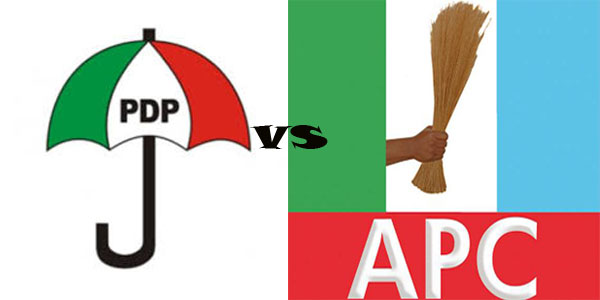
The Nigerian political landscape is being swept by a tsunami of defections. Politicians are changing party allegiance at a dizzying rate. At the rate politicians defect from one party to another, it won’t be long before Nigeria is turned into a one-party state. Since the ruling All Progressives Congress defeated the Peoples Democratic Party in the 2015 presidential election, a gale of defections is fast turning a once formidable party, or so we thought, into an endangered species.
Having been at the commanding heights of federal power since the return to democracy, there was no doubt that the defeat in the last elections threw the PDP into disarray of which it has yet to recover. Since its loss of power, its members have been quitting the party in droves. But the root of the PDP’s woes dates back to pre-2015 elections. It all started with the registration of the APC at a time the PDP was embroiled in a debilitating internal crisis. Some key members of the party had defected to the newly formed the APC.
Long before the return of democracy, Nigerian politicians had been known to hold no scruples when it came to dumping a political party to which they had once sworn allegiance. Indeed, for our politicians, the saying that in politics there are no permanent friends or enemies, but permanent interest is a truism. Since the First Republic when the first mass defection occurred, politicians have been known to ditch their parties so long as their interest is no longer served.
With the recent defections that have hit the PDP, it appears our politicians have still not learnt the democratic principles of party allegiance as it obtains in advanced democracies. I have often wondered at the rate our politicians switch party allegiance without giving a thought to democratic values that demand loyalty to party ideology. How can the country build the values inherent in a democracy when politicians switch political parties at the drop of a hat and when it suits their personal and group agenda?
At the inception of this democracy, the PDP was the strongest of the three dominant parties. It was the party to beat. Politicians would give anything to be card-carrying members of a party that termed itself the largest party in Africa. The party even boasted it would rule for 60 years. That gave credence to its formidability.
In spite of the shortcomings of the PDP, one would have thought that a party that had been in power for that long would have become an institution. But the party has failed to institutionalise. For most of the 16 years in power, the party was built around individuals who were more powerful than it. For these influential party members, the party was only a tool to achieve their political ambitions. At the state level, the governors, for example, controlled all the levers of power. It is thus not surprising that the party began to crumble as soon as the powerful individuals left the party. Another impediment that may hamper the PDP resurgence is the corruption scandal rocking the party. It may make efforts at reform difficult. In politics, perception is everything. But it behoves on the defecting party members to build the party.
Unless the PDP reforms itself or another party emerges before 2019 to challenge the APC, Nigerians may be confronted with the possibility of going into the elections with a weak opposition. This may be good news to the ruling APC but in the long run, it does not bode well for our democracy. The defections are instructive and show that politicians are selfish and will jump ship when they consider their interest threatened. In Anambra State, Mrs. Uche Ekwunife who had had her election nullified weeks ago has defected to the APC. Ditto for Chief Jim Nwobodo, Alao Akala, Rasheed Ladoja. The list is endless.
Sadly, some politicians who are facing corruption charges in court are now defecting to the APC. Some of them can also not imagine a situation where they would be in political oblivion for the next four years. There is also a sense in which one sees these defections as a way of seeking protection. This argument feeds into the widespread belief that defecting to the ruling party protects a politician from prosecution if they have been indicted of corruption. The argument to support this is that there are many politicians in the APC today who have been indicted of corruption but are walking free. Unless the APC debunks the claim and wipes its fold clean, the revelation does the party no good.
Accepting allegedly corrupt politicians who defect to swell its ranks also puts a question mark on the party’s change mantra.
As the country continues to evolve a democratic culture, our politicians must observe democratic norms of building strong political parties as a bulwark against arbitrariness and bad governance. For our democracy to strive, we need an enduring and strong opposition party that is not built around individuals to provide the needed checks to the party in power. I believe there must also be sanctions for politicians who engage in defections as they have become an embarrassment to our polity.
PUNCH
END

Be the first to comment